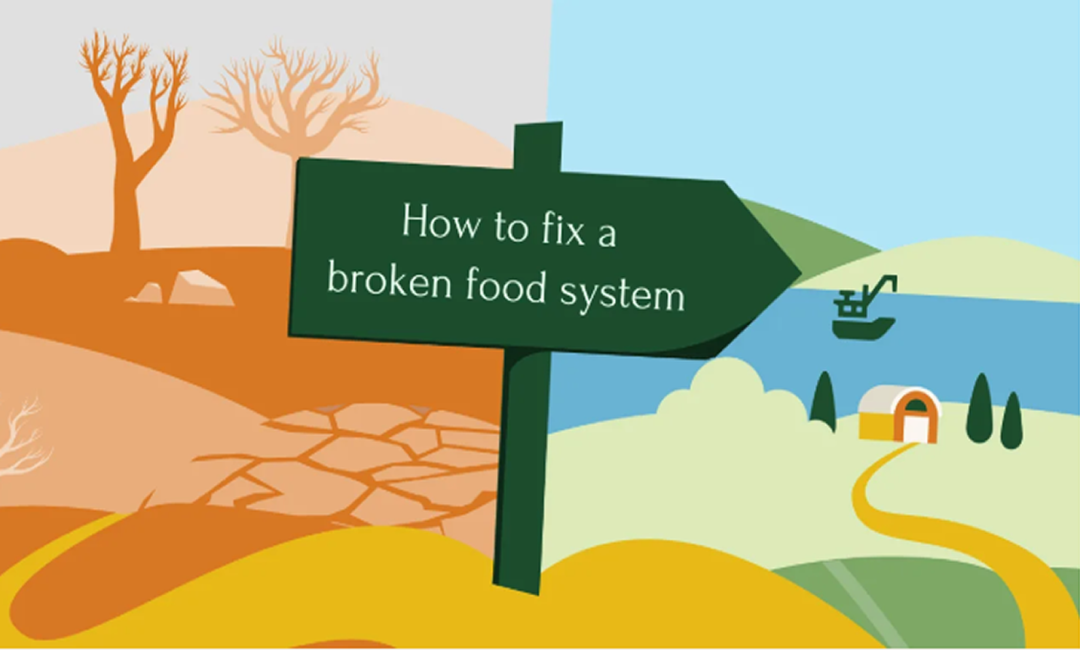
By Kofi Annan Foundation
The Kofi Annan Commission on Food Security Launches Timely Report to Reform Global Food Governance.
Geneva, 6 February 2025. Despite living in an era of unprecedented innovation and resources, 733 million people still suffer from hunger, and nearly one-third of the global population experiences food insecurity. A newly released report from the Kofi Annan Commission on Food Security (KACFS) highlights that this crisis is not merely a failure of resources— but a fundamental failure of governance.
The Commission’s landmark report highlights the pressing need for systemic reforms to tackle the escalating crisis of food and nutrition insecurity, especially as conflict, climate change, and economic instability intensify, and aid flows shrink. It presents an actionable roadmap to transform global food governance and ensure that food and nutrition security is treated as a universal public good.
“Food security should be a fundamental human right, not a privilege,” says Elhadj As Sy, former Secretary General of the International Federation of Red Cross and Red Crescent Societies and Chair of the Kofi Annan Foundation. “We cannot continue with fragmented, short-term responses while millions suffer. The time for a radical shift in governance is now.”
The Kofi Annan Commission on Food Security brings together some of the world’s most respected leaders in global health, food security, and governance.
Their report presents a new vision for food security governance— one that moves beyond siloed projects and short-term aid to create a coordinated, long-term approach. It stands out for its strong ethical foundation, comprehensive systemic perspective, and focus on actionable, measurable reforms. Inspired by Kofi Annan’s vision, the Commission prioritizes strong moral leadership and collective responsibility, empowered nations and people and fairness, security, and equity.
“Food security should be a fundamental human right, not a privilege.”
The report tackles the systemic challenges that sustain food insecurity by advocating for more streamlined multilateral agencies to improve coordination, accountability, and data-driven decision-making. It recommends key governance reforms, including the establishment of a Food Governance Group to enhance collaboration among global agencies. Additionally, it emphasizes the need to integrate food and nutrition priorities into climate, trade, and finance policies while shifting from reactive aid to proactive investments in food security, nutrition, and resilience. The report also calls for strategies that ensure equitable resource access, with a strong focus on empowering women and youth.
“Eliminating hunger requires unflinching commitment, collective action and strong leadership,” says Corinne Momal-Vanian, Executive Director of the Kofi Annan Foundation. “The commissioners have worked tirelessly to develop a transformative vision for food security governance, ensuring that systemic barriers are addressed, and meaningful change is within reach. Their dedication and recommendations are a tribute to Kofi Annan’s legacy of equity, justice, and global cooperation.”
The report comes at a time when the global response to food insecurity is under immense strain. At a time when conflict and climate change wreak havoc on vulnerable communities, and aid flows have decreased, putting millions at risk.
The Commission is calling for immediate action to restructure aid systems, attract new donors, and ensure that funding reaches those who need it most. With political will, better governance, and sustained commitment from all actors— governments, multilateral agencies, civil society, and the private sector— food insecurity can be eradicated.
“This report is a call to action for the global community,” says David Nabarro, Strategic Director, 4SD Foundation and 2018 World Food Prize Laureate. “Food and nutrition security is about more than just agricultural production— it’s about governance, equity, and shared responsibility. We must come together to replace fragmented and short-term responses with a unified, long-term approach that ensures everyone, everywhere, has access to food as a fundamental human right.”
Copyright©2025 - Tiva Inc